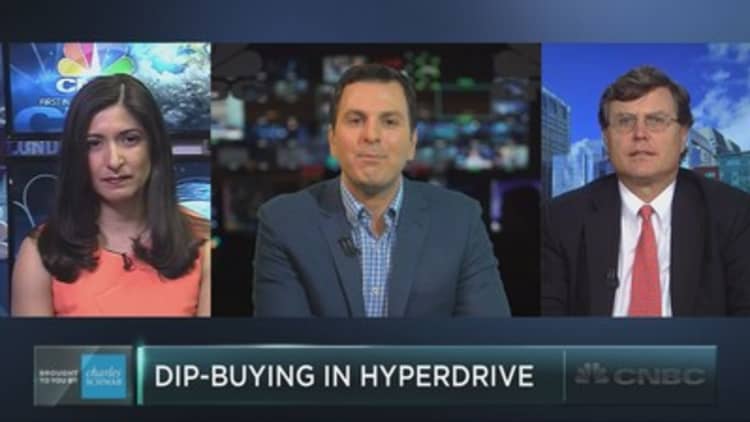
A bull market's long-term outlook is relatively insulated from the effects of "shock" events like the attack on , according to CFRA analyst Sam Stovall.
He says that's why the market, which initially sold off nearly 1 percent in overnight trading following the U.S. cruise missile strike on a Syrian airbase broke, recovered to a 0.08 percent loss for the day on Friday.
"Indeed, during bull-market shocks since [World War II], the S&P 500 fell an average 2.4 percent on the day of the shock, and slipped a total of 4.5 percent before bottoming out only nine calendar days later and getting back to breakeven in 18 days," Stovall said in a note.
Events like military escalations cause uncertainty, which pushes traders to sell. But Stovall says that after they had time to digest the news, traders asked the important question.
"'[W]ill this event escalate and ultimately lead to
As for that 18-day average recovery time, he's optimistic that the market will break even faster than usual, as earnings season is around the corner. He expects to see strong reports, bolstering the market past its pre-strike level.
Correction: The market initially sold off nearly 1 percent in overnight trading after the strike. An earlier version misstated the percentage move.


